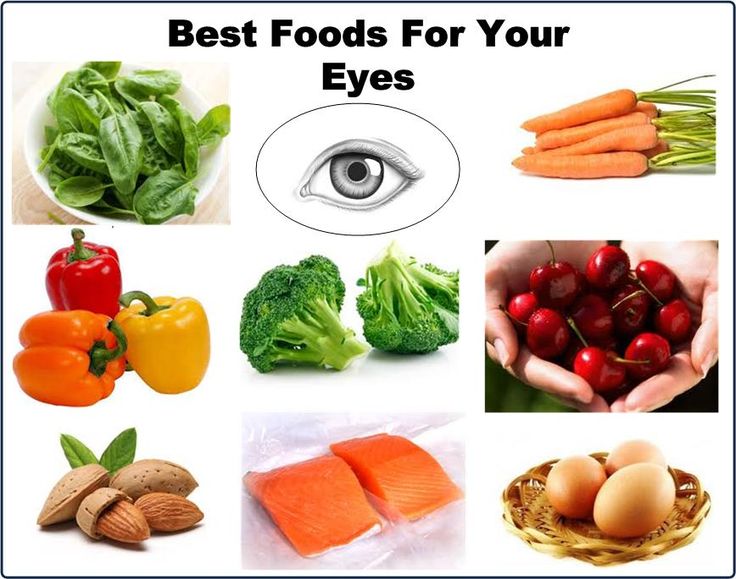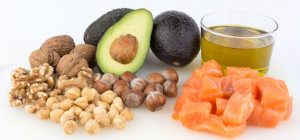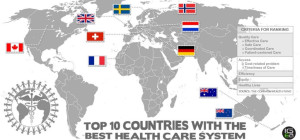We all know that eating healthy foods is good for our bodies and improves our health. In the current fast-paced life, we have become overly cautious about health and fitness and most of the time we do try to keep track of what kind of foods are on our plate. But how many of us even try to focus on the vision? Our eyes need to stay healthy too; after all, it is because of them we are seeing the shenanigans of this world. In this article, I am discussing the 5 best foods that help you with your vision.

According to the Age-Related Eye Disease Study (AREDS), published in 2001, certain nutrients – copper, beta-carotene, vitamin E, vitamin C, and zinc help reduce the age-related eye health by 25 percent. After further tests were conducted in 2003, the list was updated and omega 3 fatty acids, lutein, and zeaxanthin were added to the list of essential nutrients for eye health. We reached out to many experts, and the ones at See and Be Seen Eye Care were quick to let us know what foods should we consume in order to stabilize our diet on a daily basis with these nutrients. Below, we discuss 5 food categories that carry these vital nutrients.
Fish
The various health benefits of fish cannot be ignored. Fish such as salmon, tuna, sardines, and mackerel are rich in omega 3 fatty acids, which may help protect against dry eyes, macular degeneration and even cataracts. Omega 3’s also protects the eyes from glaucoma. Low levels of this fatty acid are linked to dry eye syndrome. Some studies have also shown a reversal of dry eye when fish oil was consumed.
Leafy Greens
Anything green is nutritious. Spinach, kale and collard greens, to name a few, are full of vitamin C and vitamin E. Furthermore, they are enriched with carotenoids: lutein and zeaxanthin. These are plant pigments that can help reduce the development of macular degeneration and cataracts. Broccoli, peas, and avocados are also good sources of these powerful antioxidants. These antioxidants act as a natural sunscreen for the eyes.
Eggs
Eggs are a powerhouse of nutrients. The yolk of the egg contains lutein and zeaxanthin which can be made useful in the body by the zinc present in the egg white. This element coupled together help protect the retina from harmful blue light. They also help boost the production of the protective pigment in the macula. The vitamins and nutrients in eggs, including lutein and vitamin A, also aid in protection against night blindness and dry eyes and also promote eye health and functioning.
Citrus Fruits and Berries
Vitamin C is essential for the immune system but did you know that Vitamin C is another antioxidant that is good for eye health. It has been recommended by the American Optometric Association (AOA) and is known to reduce the risk of developing cataracts and slows down the progression of macular degeneration. Our eyes contain tiny capillaries that transport nutrients and oxygen via blood to the eyes, and vitamin C is essential for healthy capillaries. Oranges, grapefruits, lemons, and berries fall in this category of food.
Nuts and Seeds
Almonds, pistachios, and walnuts are rich in omega-3 fatty acids and vitamin E that enhance your eye health. Vitamin E also protects our cells from unstable molecules that can damage healthy tissue. Vitamin E along with other nutrients in these nuts helps slow down macular degeneration which is age-related. Peanuts, hazelnuts and peanut butter are also good sources of vitamin E. Similarly seeds as chia seeds, flax seeds, sunflower seeds are also high in Omega 3 and vitamin E, both of which are essential for a healthy vision.
The recommended daily intake of these nutrients, as suggested by AAO, is as follows:
- 10 mg Lutein
- 2 mg zeaxanthin
- 500 mg Vitamin C
- 400 IU Vitamin E
- 80 mg Zinc oxide
- 2 mg copper oxide
It is not necessary to eat these foods in their existing forms. If your taste buds do not approve of the taste, try mixing them up in a form of a smoothie or shake. Consuming the right amount of good food along with good care of the eyes will always keep you in a safe zone. Make sure to wear sunglasses when going out in the sun and schedule an eye exam annually. This will help you keep track of your vision and its concerns if any.




